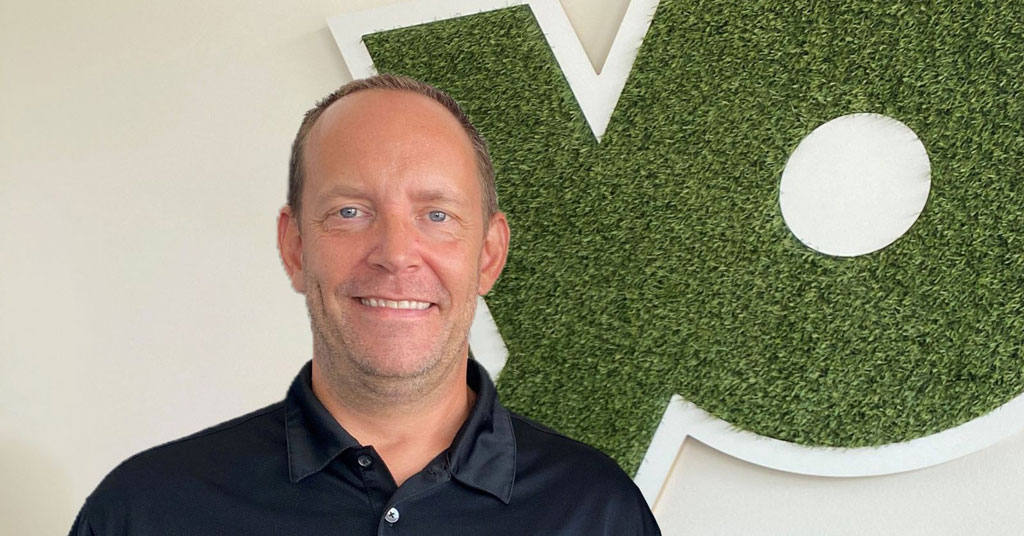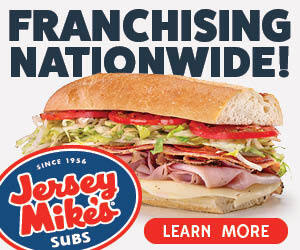Management Insight: Fitness Franchisees on 'Division of Labor'

Chris Dordell, Co-Owner of Coachella Fitness Concepts
Chris Dordell and Jason Fenske are building a group of fitness franchise locations in Palm Springs, California—and working at it more than full-time.
“We talk about business 24/7 and work constantly, but we hope to get to a point where we have more downtime than we do now,” says Dordell. Although they’ve defined a division of labor for themselves—Dordell is the CFO and CMO and Fenske manages the HR team for the 60 employees at five locations, the retail experience at all the locations, and the indoor cycling unit—employees who see them just assume they are interchangeable. “So we both have to know everything,” he says.
The duo say they are happy with their Palm Springs territory and don’t want to go too far or expand a lot more. “I feel like the business will be much more successful when you are on the ground as an involved owner,” says Dordell.
MANAGEMENT
Business philosophy: Dordell: Do your best to provide a welcoming environment for employees and customers, but one that is also ethical and common sense. This will keep people coming back. Fenske: 1) Do something you love. 2) Work with people you genuinely like and care about. 3) Listen more than you speak. 4) Avoid drama by taking responsibility and speaking clearly.
Management method or style: Dordell: I would say I am hands-on, but I try as much as I can to teach people to do a task, rather than do it myself. Also, giving people grace and knowing that they probably don’t know as much as I do at times, or have different areas of expertise than I do. I’m always willing to listen to all ideas and then make a decision. Fenske: I think about management from a perspective of experiences. What is the experience I want my team to have, and what is the experience I want them to deliver for my customers? Then ask for feedback and be curious about what I hear so I can make change for the better. When I meet with my team I always try to have a good mix of inspiration, information, and participation.
Greatest challenge: Dordell: People are the greatest challenge. Hiring, training, and retaining people. Fenske: I always have a lot of creative ideas brewing in my head that can lead to “shiny object syndrome.”
How do others describe you? Dordell: I would say fair, practical, common-sense, even-keeled with a dry sense of humor. Fenske: Passionate, caring, smart, driven, curious, and fair.
One thing I’m looking to do better: Dordell: Train my managers and team to delegate and let go of more. Fenske: I’d love to find more ways to have an impact in the broader community as a business owner and business leader.
How I give my team room to innovate and experiment: Dordell: I try to check in regularly and ask questions that might spur new ideas. And setting boundaries so they know where the lines are. Fenske: I try to be a debate-maker, meaning that any suggestion is welcome and worthy of a conversation.
How close are you to operations? Dordell: Very close. I am able to step in and manage any of our businesses on a day-to-day basis should someone get sick or leave. Fenske: Very close! I’m in one or more of our studios almost every day.
What are the two most important things you rely on from your franchisor? Dordell: Best practices/tips from other franchisees and national brand support to help brand recognition. Fenske: We need best practices that evolve as we learn more and marketing/branding support.
What I need from vendors: Dordell: Show the value of the service you provide. How have you helped other business owners? Understand our challenges. Fenske: High-quality products and great customer service/communication.
Have you changed your marketing strategy in response to the economy? How? Dordell: We follow our franchisors’ marketing strategy, which is a combination of digital advertising and community events. As for brand positioning, we need to demonstrate the value of what we provide and why someone should invest in their own health. Fenske: It’s all about connecting through social media, making people feel something that drives them to get in touch.
How is social media affecting your business? Dordell: As with anything, the biggest challenge is anyone can post anything online, whether it is true or not, or just comment on ads and be negative. On the plus side, it does help people learn about our brands and offering. It’s a must to be on there and posting regularly. Fenske: Our advertising is almost exclusively on social media platforms, and the best advertising is when someone posts about their experience for their friends.
How do you hire and fire? Dordell: It’s so difficult to find solid part-time employees who really have a passion for fitness and aren’t just looking for a job. We do the best we can with training, but if someone is not the right fit we try to take action as soon as possible, following the right legal steps. Fenske: We use standard questions for all interviews to make sure all candidates are treated equally. We have a simple process for hiring: phone screen, audition (for teachers), and in-person (panel) interview. When it comes to letting someone go, we try to take action as soon as possible if we determine that someone isn’t the right fit for the role.
How do you train and retain? Dordell: We do lots of shadowing of managers and other employees in each studio. We also rely on training modules provided by the franchisors. Fenske: For our front desk teams, we have an onboarding process to make sure they know all the core components of their job. And we do a lot of role playing, not just when hired, but all throughout an employee’s time with us. For teachers, we have a more robust training to ensure that they are following our corporate standards and methodologies. Each brand has a “Bridge Training” that takes their knowledge and experience and helps them learn to shape it so it meets our expectations.
How do you deal with problem employees? Dordell: Give them verbal feedback, then proceed to verbal and written warnings, if necessary. In some cases, if an instructor or operations staff person is a liability to the business we have taken action to terminate them. Fenske: Be honest, offer regular feedback, and set actionable goals with appropriate support. If that doesn’t work out, it’s better to part ways than to continue down the wrong path.
Fastest way into my doghouse: Dordell: Not being responsible with business resources, or just not caring. Fenske: Withholding information or outright lying will land you in the doghouse.
Share this Feature
Recommended Reading:
| ADVERTISE | SPONSORED CONTENT |
FRANCHISE TOPICS
- Multi-Unit Franchising
- Get Started in Franchising
- Franchise Growth
- Franchise Operations
- Open New Units
- Franchise Leadership
- Franchise Marketing
- Technology
- Franchise Law
- Franchise Awards
- Franchise Rankings
- Franchise Trends
- Franchise Development
- Featured Franchise Stories
| ADVERTISE | SPONSORED CONTENT |

$500,000
$1,000,000





 The multi-unit franchise opportunities listed above are not related to or endorsed by Multi-Unit Franchisee or Franchise Update Media Group. We are not engaged in, supporting, or endorsing any specific franchise, business opportunity, company or individual. No statement in this site is to be construed as a recommendation. We encourage prospective franchise buyers to perform extensive due diligence when considering a franchise opportunity.
The multi-unit franchise opportunities listed above are not related to or endorsed by Multi-Unit Franchisee or Franchise Update Media Group. We are not engaged in, supporting, or endorsing any specific franchise, business opportunity, company or individual. No statement in this site is to be construed as a recommendation. We encourage prospective franchise buyers to perform extensive due diligence when considering a franchise opportunity.